The Intellectual Property Law Alliance of Guangdong-Hong Kong-Macao Greater Bay Area (IPLAG) organized the 2023 Annual Conference and the 5th Intellectual Property Macau Forum, which was held on December 2nd at Guangzhou Science City.
The event was hosted by the China Strategy Institute for Intellectual Property, co-organized by the Macau Intellectual Property Service Center/ the Faculty of Law of the M.U.S.T., and the Intellectual Property Service Center of Zhongnan University of Economics and Law.
Professor Wu Handong, the Honorary Director of the Macau Intellectual Property Service Center and Distinguished Guest Professor at the Faculty of Law of theM.U.S.T., and Professor Ma Yide from the School of Public Policy and Management/Intellectual Property School of the University of Chinese Academy of Sciences, delivered keynote speeches at the forum.
Professor Wu Handong's speech focused on "The Rule of Law, Historical Perspective, and Development Perspective of Intellectual Property Awareness." He emphasized that building China's own system, theoretical framework, and discourse system for intellectual property issues is a major task for the current philosophical and social science community in China. Regarding the rule of law, he believed that intellectual property is an important lever for China's transition from tradition to modernization, as it is closely related to modernization development and its institutional system. In terms of historical perspective, Professor Wu pointed out that intellectual property has played a significant role in promoting cultural prosperity, technological innovation, economic development, and social progress in modern and contemporary nations. Although China's intellectual property system originated from Europe and the United States, it has now become a maintainer, builder, and promoter of international rules. Regarding the development perspective, Professor Wu highlighted the challenges faced by the intellectual property system due to new technologies, new business models, and new modes, emphasizing the need for continuous transformation in the process of adapting to the technological revolution. Intellectual property plays an important role in promoting China's unique modernization development, and it should emphasize the creation of high-quality intellectual property, efficient utilization, and high-level protection.
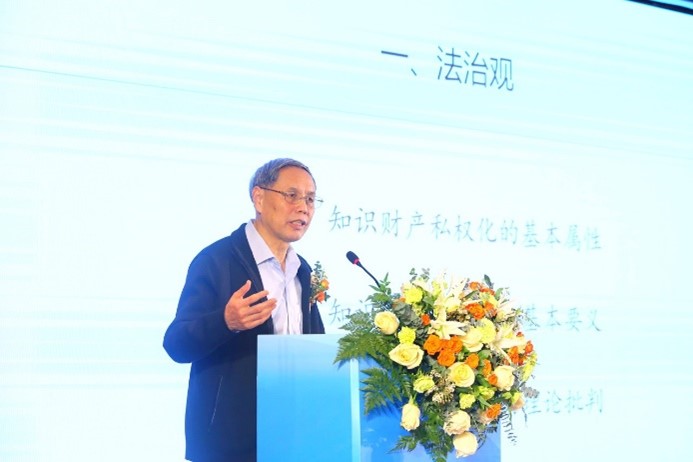
Distinguished Guest Professor Wu Han Dong delivered a keynote speech at the forum
Professor Ma Yide delivered a keynote speech on "The Development and Prospects of China's Pharmaceutical Intellectual Property System in the Context of Healthy China." His speech focused on the development and prospects of China's pharmaceutical intellectual property system. He first emphasized that intellectual property is the fundamental institutional framework that stimulates and regulates pharmaceutical innovation in the context of building a healthy China. He mentioned that since China's accession to the WTO, the country's protection of pharmaceutical intellectual property has transitioned from passive acceptance and adaptive adjustments to active choices, establishing a modern framework for the pharmaceutical intellectual property system. Recent trials of the pharmaceutical patent linkage system and related adjudication cases indicate that China's pharmaceutical patent system is still in the process of creation and initial stages, and future improvements to the relevant system will need to be based on the country's industrial development. Professor Ma concluded by emphasizing the continued utilization of institutional space within relevant international conventions to respond to the pandemic, and he highlighted that independent innovation is the fundamental means to guarantee the realization of citizens' right to health. Addressing public health issues should become the primary goal of China's pharmaceutical intellectual property system development.
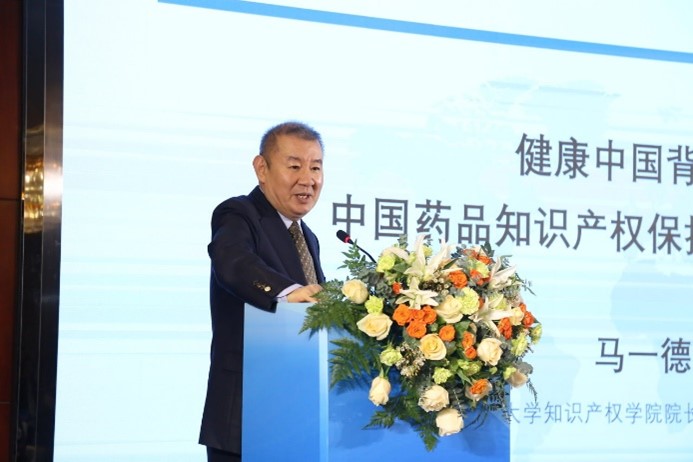
Professor Ma Yide delivered a keynote speech at the forum
The first session of the forum focused on "Research on the Fundamental Theories of Intellectual Property Systems" and was chaired by Professor Yi Zaicheng, the Secretary-General of the IPLAG, from the Faculty of Law at the Macau University of Science and Technology.
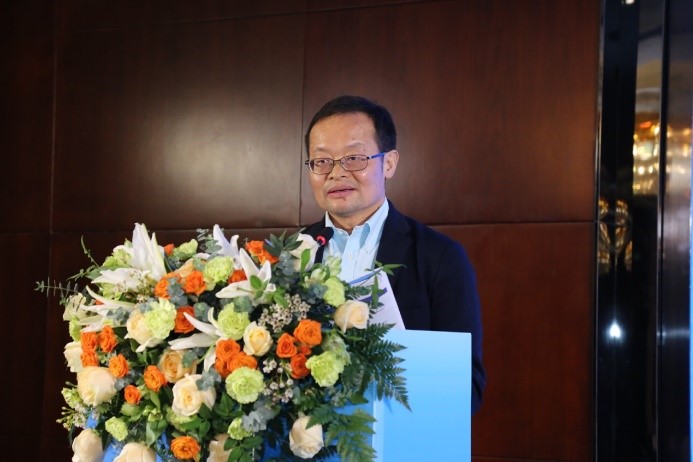
Professor Yi Zaicheng presided over the meeting
Professor Peng Xuelong, the Director of the Intellectual Property Research Center at the Zhongnan University of Economics and Law, delivered a speech on "Damages in Trademark Malicious Litigation." He pointed out that trademark malicious litigation is a key issue in the governance of trademark law in China. He provided a detailed explanation of the current regulations, the nature of trademark malicious litigation, and the elements of damages. He proposed the improvement of the statutory compensation system and the introduction of punitive damages to further regulate trademark malicious litigation. He emphasized the need not only to address substantive issues but also to explore the procedural aspects, such as the initiation of such lawsuits and the allocation of evidentiary burdens.
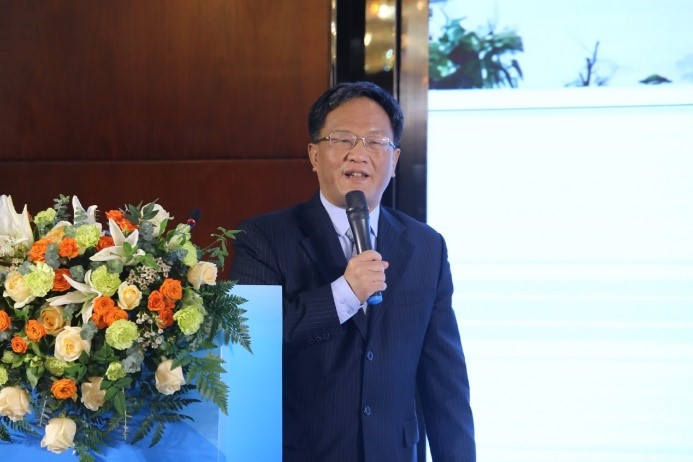
Professor Peng Xuelong
Professor Ye Weiping, the Dean of the Institute of Innovation and Development Rule of Law at Shenzhen University, discussed "The Development of the Artificial Intelligence Industry and Its Legal Issues." He emphasized the close connection between the digital economy and legal construction and believed that the development of the artificial intelligence industry will become increasingly prominent in the future. He proposed further improvements in the rule of law regarding industrial governance, power allocation, behavioral norms, and creating a legal environment conducive to the development of the artificial intelligence industry.
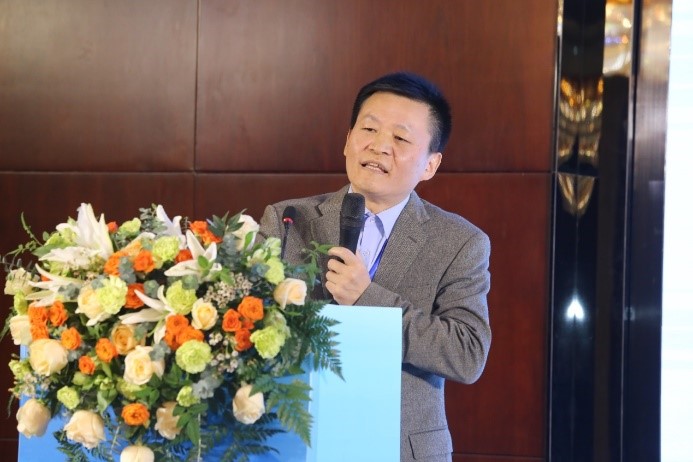
Professor Ye Weiping
President Guan Yonghong of the Intellectual Property Law Research Association of the Guangdong Law Society, in her speech on "The Value and Judicial Determination of the Normal Use System for Trademarks," pointed out that the system of legitimate use of trademarks helps prevent excessive control over public resources, defines reasonable boundaries for the exercise of intellectual property rights, safeguards public interests and freedom of expression, and maintains a fair market competition order. She acknowledged that although the regulations on legitimate use in trademark law are not perfect, various courts have issued relevant guidelines and interpretations to address this deficiency.
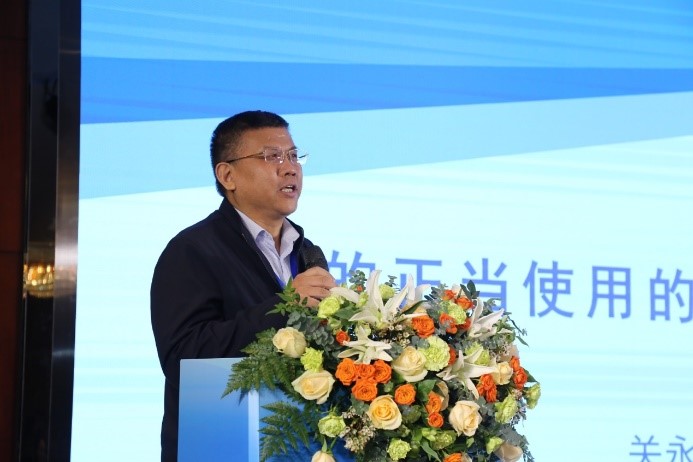
President Guan Yonghong
In the speech on "Exploring the Construction Model of Intellectual Property Think Tanks," Director Zhang Chi of China Strategy Institute for Intellectual Property highlighted the multiple roles of China Strategy Institute for Intellectual Property Think Tank as a government decision-making think tank, a strategic advisor on corporate intellectual property, and a high-level platform for communication. She also emphasized its contribution to the construction of high-end intellectual property think tanks in China. Director Zhang acknowledged the role of think tanks in promoting the comprehensive construction of a socialist modern country and advancing the modernization of the socialist governance system. She called for deep connections with diverse resources such as academia, industry, and domestic and international spheres, as well as efforts to promote intellectual property stories and the dissemination of intellectual property culture. She also expressed the hope for more people to pay attention to and join Zhongce Think Tank in exploring innovation.
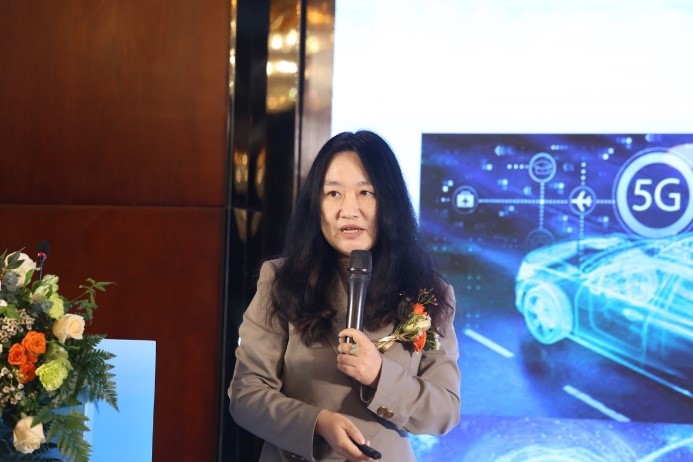
Director Zhang Chi
Professor Yao Zhiwei from the Law School of Guangdong University of Finance and Economics, in his presentation on "Legal Regulation of Risks in Generative AI Content," pointed out that generative AI has sparked a global frenzy and emphasized that China is at the forefront of its legal regulation. He proposed that generative AI should disclose the sources of its content, or else it may lead to legal issues. At the same time, he highlighted the evolving responsibility framework regarding infringement issues in the context of generative AI, involving not only users but also service providers. In response, he believed that a new safe harbor mechanism should be constructed, wherein security investments can be exchanged for liability exemptions to address the challenges of applying traditional safe harbor mechanisms in the context of generative AI.
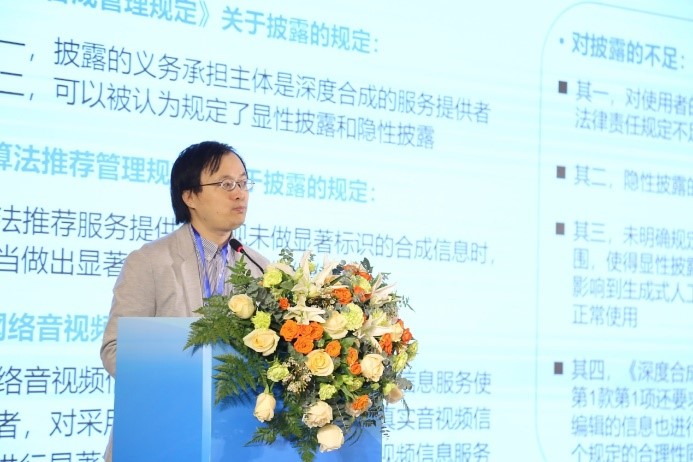
Professor Yao Zhiwei
Director Zhang Qiuyue from the China (Zhuhai) Intellectual Property Protection Center presented on "Enhancing Comprehensive Protection of Intellectual Property Chain - Exploration and Practices of Zhuhai Protection Center." She advocated for the concept of "enhancing comprehensive protection of the intellectual property chain," emphasizing that innovation is the primary driving force for development, and protecting intellectual property is protecting innovation. She shared the center's specific work in rapid examination, confirmation, and protection of rights, as well as highlighting the importance of improving the quality of patent applications and authorizations. By leveraging information service platforms and pre-examination services, high-quality innovation can be transformed into high-quality applications, leading to high-value patents and facilitating high-quality development.
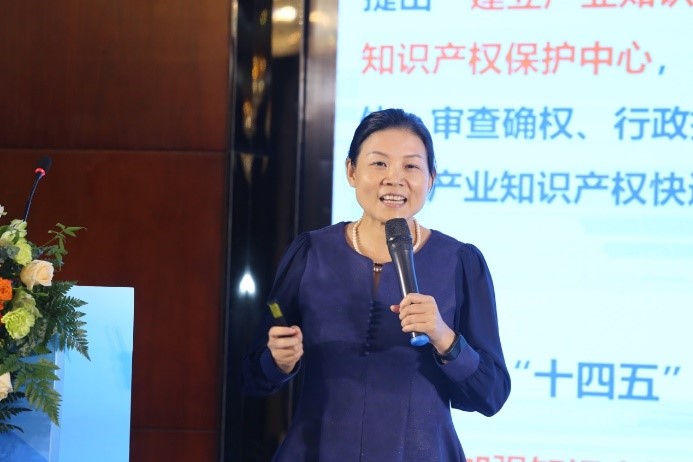
Director Zhang Qiuyue
Associate Professor Cai Chuanzi from the Law School of South China University of Technology provided commentary on the speeches given by the aforementioned speakers. Regarding trademark issues, she believed that trademark disputes have gradually evolved from traditional infringement issues into deeper topics, and the experts at the conference provided insightful evaluations on understanding "legitimate use of trademarks" and "how to deal with legal risks associated with legitimate use of trademarks." On the topic of artificial intelligence, she further explored legal issues related to the objects of law in relation to AI and mentioned the lawful use of AI, originality of generated content, and risks for service providers. Based on the recognition of the arguments put forward by the experts at the conference, she further concluded that AI operators are fundamentally different from traditional network service providers and that issues related to AI should be addressed based on existing legal foundations.
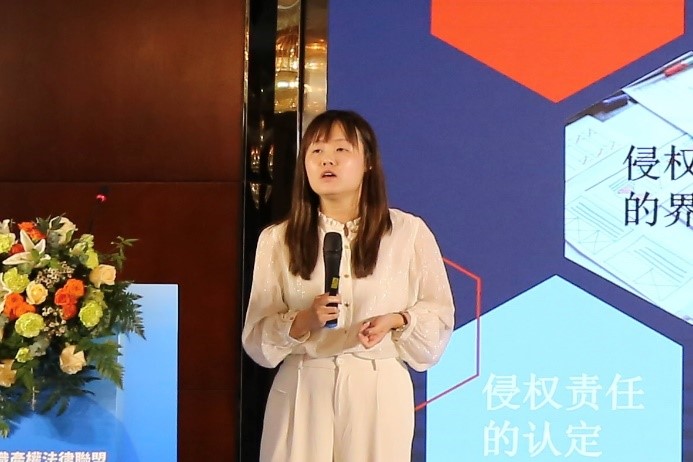
Assistant Professor Cai Chuanzi
Forum Unit 2, titled "Exploratory Research on the Practice of Intellectual Property System," was chaired by Vice General Manager Chen Ting of China Strategy Institute for Intellectual Property.
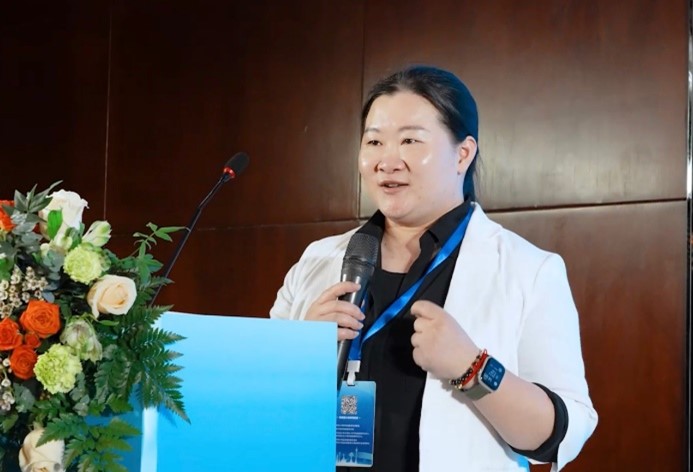
Chen Ting, Vice General Manager
Professor Xu Xuan from the Intellectual Property Research Institute of Jinan University delivered a speech on "Constructing the Knowledge System of Intellectual Property." She pointed out that the rapid development of intellectual property has reached a stage of reflection. From a philosophical perspective, it is not only the protection of individual intellectual achievements but also the increase in human intellectual capacity. Defining the knowledge system of intellectual property requires an understanding of how it promotes the growth of intellectual practice and researching the laws of this growth. She believes that the current system still has problems, including the lack of consensus on the highest level of intellectual property protection and the proliferation of implementation leading to capital expansion, resulting in the majority of intellectual property being held by capital. She also mentioned the imbalance in institutional allocation and the excessive pursuit of indicators that do not reflect real progress, calling for reflection and improvement. Finally, she emphasized that based on theoretical and institutional support, intellectual property will play an important role in realizing the dream of an innovative nation.
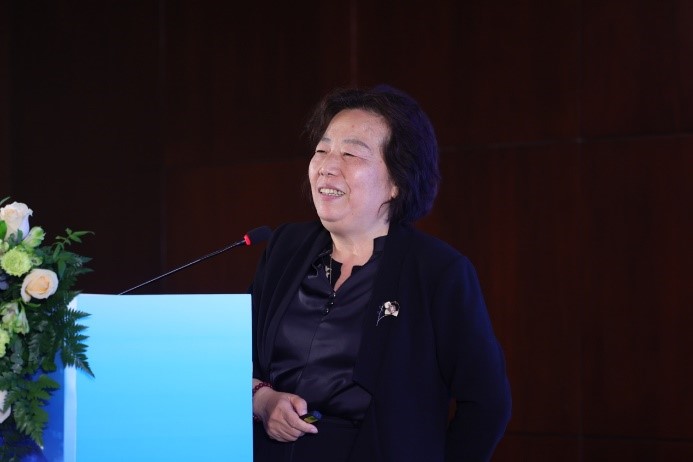
Professor Xu Xuan
Associate Professor Peng Xinqian from the Law School of Guangzhou University delivered a speech titled "Protection of Traditional Knowledge under the RCEP and the Improvement of China's Intellectual Property System." She believes that the RCEP covers a large population and has a huge economic scale, and the establishment of a system for protecting intellectual property rights can help maintain regional integration and cooperation and reduce barriers to trade and investment. However, in the face of traditional knowledge protection, there is currently no internationally recognized definition, so it is necessary to combine specific scenarios and expand its definition. She proposed solutions for the recognition of traditional knowledge rights, the disclosure of origins, unified cross-border transfer, and sharing systems, hoping to improve the current situation.
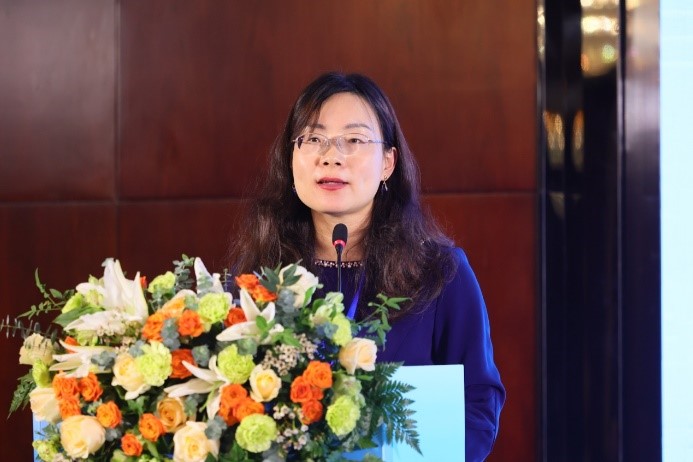
Associate Professor Peng Xinqian
Assistant Professor Liao Si from the Faculty of Law at Macau University of Science and Technology (M.U.S.T.) and the Macau Intellectual Property Service Center delivered a speech titled "Transformation Direction of Macau's Intellectual Property Legal System under the Planning of Moderate Diversified Economic Development." He pointed out that Macau's excessively single industrial structure has already had a significant impact on the local economy. Therefore, the current proposal of "moderate diversified economic development" in Macau is timely. Based on this reality, Macau's intellectual property legal system should be further improved, taking advantage of local traditional advantageous industries and drawing on the innovative development experiences of other countries such as Singapore, gradually constructing an intellectual property legal system that encourages innovation in Macau. He emphasized that future reforms of Macau's intellectual property legal system should pay more attention to local issues and called for further cooperation among experts and scholars in this area.
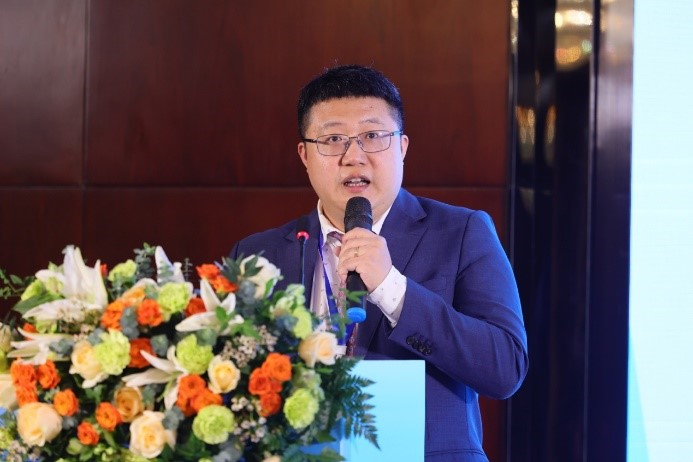
Assistant Professor Liao Si
Research Assistant Professor Guan Taorui from the Law School of the University of Hong Kong delivered a speech titled "Bundling Structure in Patent Licensing Agreements." His research analyzed 400 patent licensing agreements of listed companies in the United States and found that 42.25% of the patent licensing agreements involved bundled asset transfers. He believes that an effective intellectual property trading platform should pay more attention to complete asset transfers and analyze the specific circumstances of the parties to the transaction, and use data and models for analysis and matching, forming transaction structures that are tailored to local conditions and timely. He hopes to stimulate thinking on the ideal mechanism for intellectual property transactions and make recommendations.
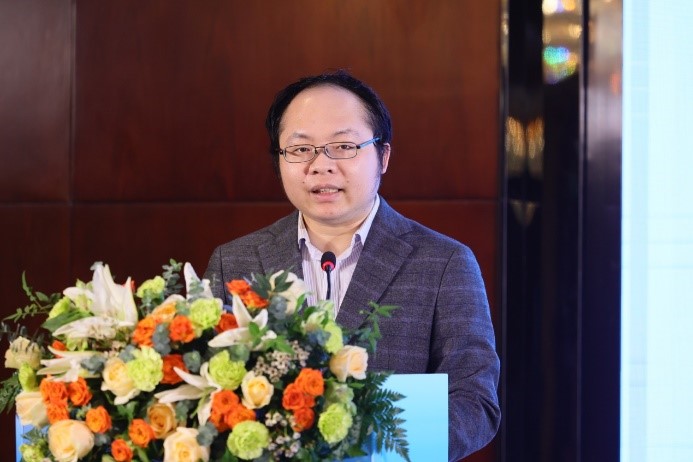
Research Assistant Professor Guan Taorui
Mr. Dong Peng, Vice President of Strategic Cooperation at Guangzhou Kugou Technology Co., Ltd., delivered a speech titled "Innovation Practices and Compliance Issues in the Integration of AI and the Digital Music Industry." He shared the innovative practices and related regulatory issues in the integration of AI and the digital music industry. He advocated that the rapid development of the music industry has benefited from the strengthening of China's intellectual property system, especially in the rise of digital music platforms and the overall legalization of music. However, the integration of AI and big data development in innovative applications, such as AI singers and music creation platforms, faces new legal issues, including copyright, personality rights, and data compliance. He called for the industry to consider long-term content review systems and values for AI products and hoped for further research and discussion on related regulatory issues.
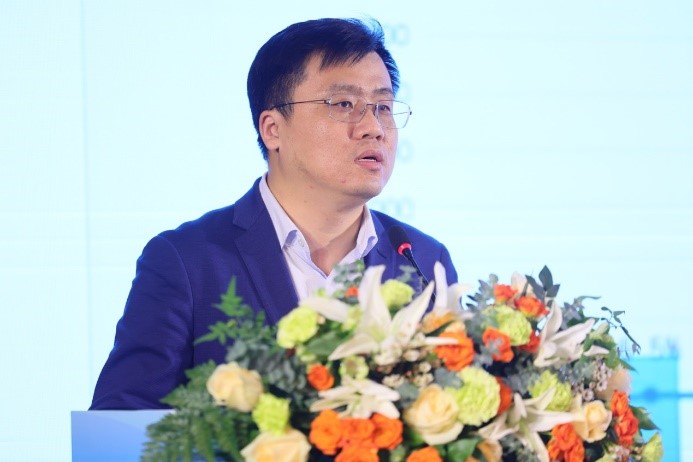
Vice President Dong Peng
Lawyer Ma Ziqiao, Consultant at ZLF Law Office(Hengqin), presented a speech titled "Research on Copyright and Other Legal Issues of NFT Visual Works." Lawyer Ma pointed out that although non-fungible tokens (NFTs) have been emerging since 2014, the opaque market and the understanding of digital art have kept traditional art transactions firmly rooted in traditional methods. Legal issues such as copyright of NFT works, attribution rights for collaborative works, and fair use issues are still unresolved. He also mentioned the development of technologies for automatically tracking and identifying infringing works to facilitate exploration of new rights
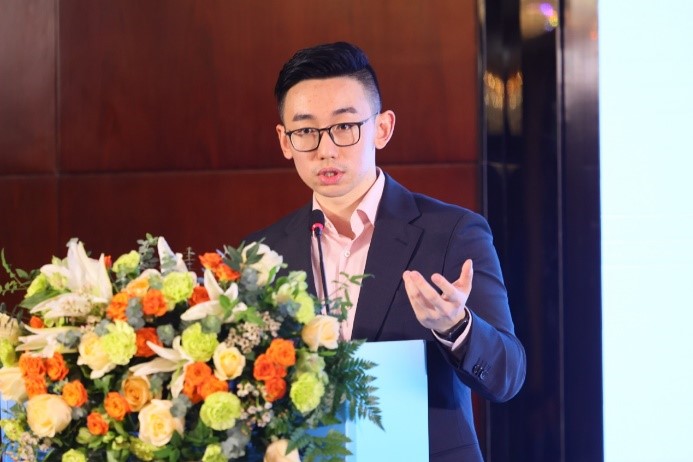
Lawyer Ma Ziqiao
Liu jiancui, the Executive Dean of the Intellectual Property School at Shenzhen University, provided comments on the speakers of the second session. She believes that Professor Xu Xuan once again affirmed the importance of the intellectual property system in shaping the Chinese Dream. Associate Professor Peng Xinqian deepened the understanding of traditional intellectual property protection in the context of the new national strategy. Assistant Professor Liao Si's research will promote innovation and integrate into the overall national development, demonstrating a high level of foresight and strategic significance. The speech by Research Assistant Guan Taorui highlighted the importance of intellectual property transactions as a means to drive technological innovation and economic development in the context of innovation explosion. Vice President Dong shared innovative practices on the integration of AI and the digital music industry. Lawyer Ma Ziqiao raised legal issues regarding the copyright of NFT visual artworks, which sparked academic insights on the protection of emerging things under existing legal systems.
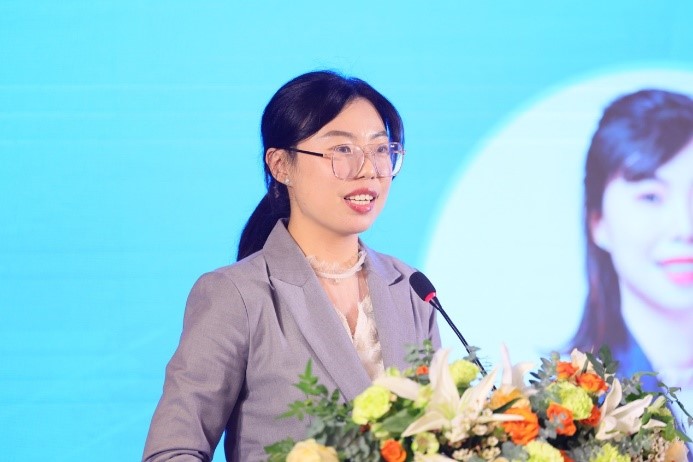
Liu jiancui, Executive Dean
The theme of the third session of the forum is "Cutting-edge Issues and Research on Intellectual Property in the Guangdong-Hong Kong-Macao Greater Bay Area and the Hengqin Guangdong-Macao In-depth Cooperation Zone." Vice President Xu Zhiming of the Zhuhai Court of International Arbitration served as the moderator for this session.
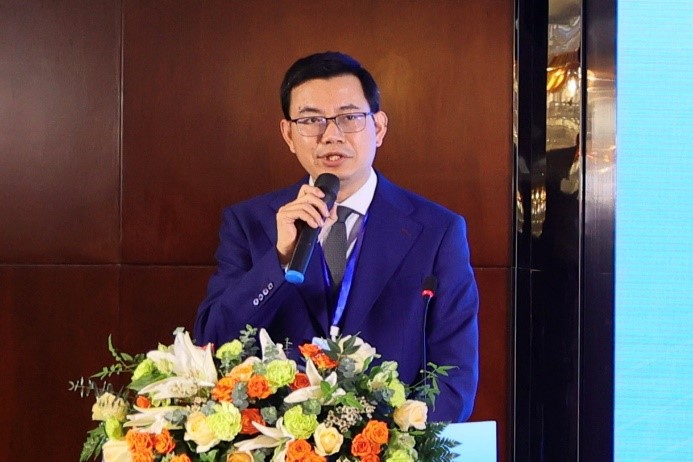
Vice President Xu Zhiming
In the session "Exchange, Practice, and Exploration of Intellectual Property in the Guangdong-Hong Kong-Macao Greater Bay Area," Executive President Zeng Zhihong of the Guangzhou Development Zone Intellectual Property Promotion Association emphasized that the Greater Bay Area actively promotes productivity exchange and cooperation to enhance international influence and competitiveness. However, it also faces challenges in terms of regulations, protection standards, law enforcement, and talent resources. Therefore, it is necessary to improve the intellectual property system, strengthen talent development, promote international cooperation and exchange, and digitize intellectual property applications to make the Greater Bay Area a global intellectual property center and enhance international influence.
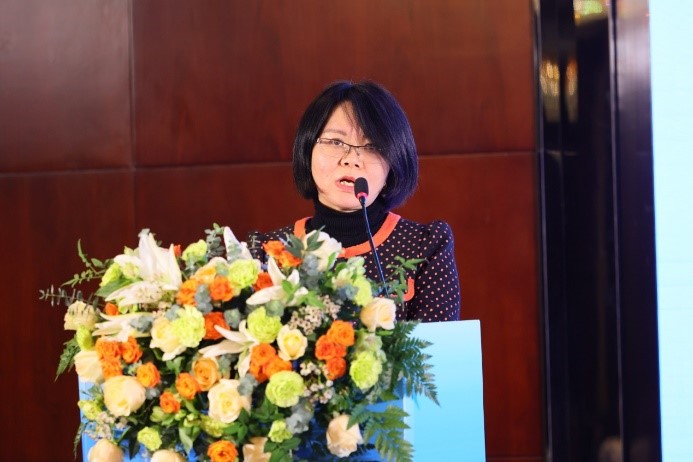
Executive President Zeng Zhihong
Associate Professor Chen Xiankai from the School of Law/Intellectual Property School at Jinan University delivered a speech titled "Legitimacy Analysis of Using Others' Trademarks in Internet Maps." In his speech, he analyzed whether the current trademark law is applicable to map services. He found that map services often use graphic trademarks and are frequently associated with e-commerce services. In the past, there have been legal cases that recognized such behavior as infringement. However, he believes that as long as there is no counterfeiting or confusion of the original trademark rights holder and the use is legitimate and indicative, it can be considered legal. He requested that legislators regulate this area to avoid infringement disputes.
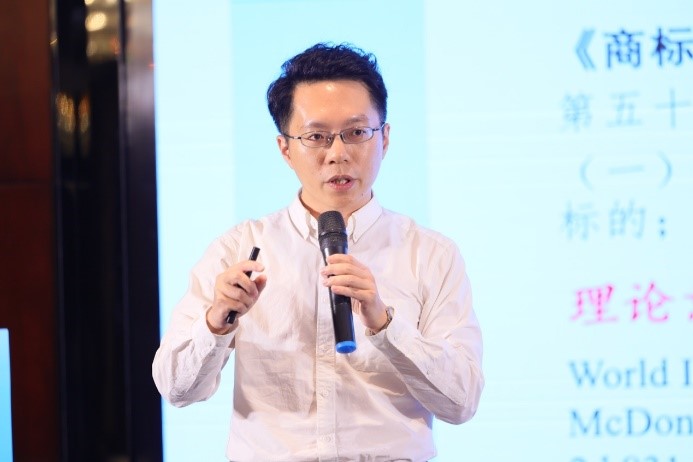
Associate Professor Chen Xiankai
ssociate Professor Xie Lin from the Law School of Sun Yat-sen University delivered a speech on the topic of "Personal Information Deletion Obligations in Generative Artificial Intelligence." She pointed out that the training data for artificial intelligence comes from the internet and user conversations, and once it enters the training model, it cannot be directly deleted like traditional computers. She proposed handling it according to the principle of balancing interests, introducing a legitimate interest exemption mechanism, and masking the output results of the training model instead of directly deleting them. In conclusion, it is necessary to flexibly interpret and introduce new mechanisms to balance the protection of personal data and the promotion of technological development in artificial intelligence.
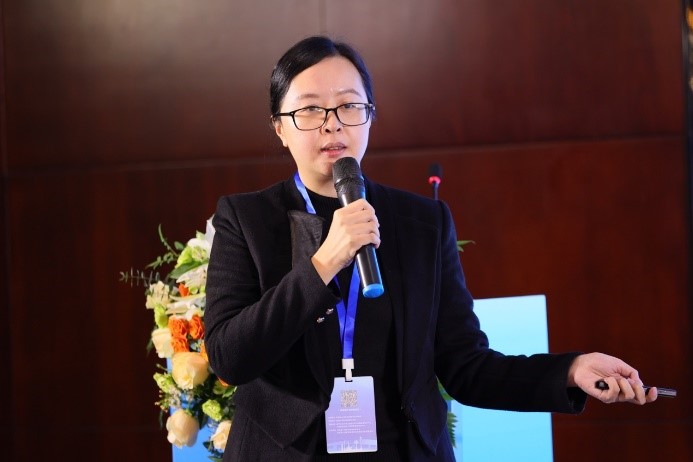
Professor Xie Lin
Professor Han Shuli from the Law School of Jinan University spoke on the topic of "Research on the Extraterritorial Application of China's Patent Law." He advocated that the extraterritorial application of international law should reflect three phenomena: the improvement of domestic law in dealing with international relations, the need to adjust the relationship between international law and domestic law to avoid excessive intervention in the governance process of countries, and the shaping of new international law through the extraterritorial application of domestic law. He believed that the extraterritorial use of intellectual property law is highly controversial in the intellectual property field, and the extraterritorial application of China's patent law is beneficial for China's participation in the formulation of international intellectual property rules.
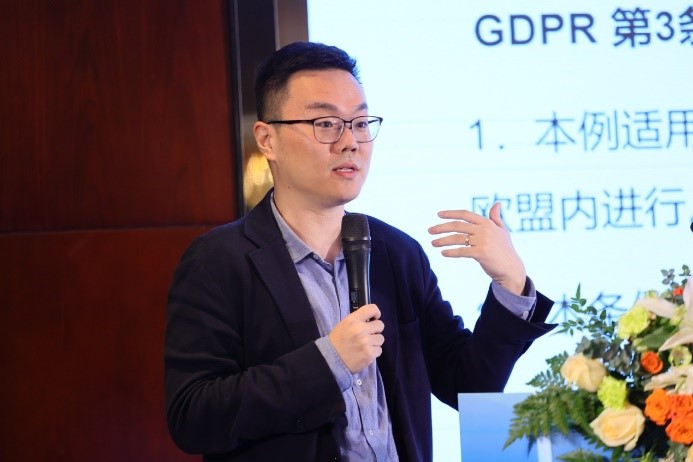
Professor Han Shuli
Deputy Director Wu Tianyu from the International Business Department of Zhuhai of Court International Arbitration (ZCIA) delivered a speech titled "Practice and Exploration of Arbitration and Mediation in Intellectual Property Disputes in Hengqin." In his speech, Deputy Director Wu shared the practical exploration of ZCIA in the field of intellectual property. He pointed out that although intellectual property disputes account for a small proportion of cases, arbitration still has its advantages in terms of efficiency and expertise, and he hopes that more market entities will choose arbitration as a way to resolve disputes. At the same time, he also proposed the possibility of resolving intellectual property infringement cases through mediation.
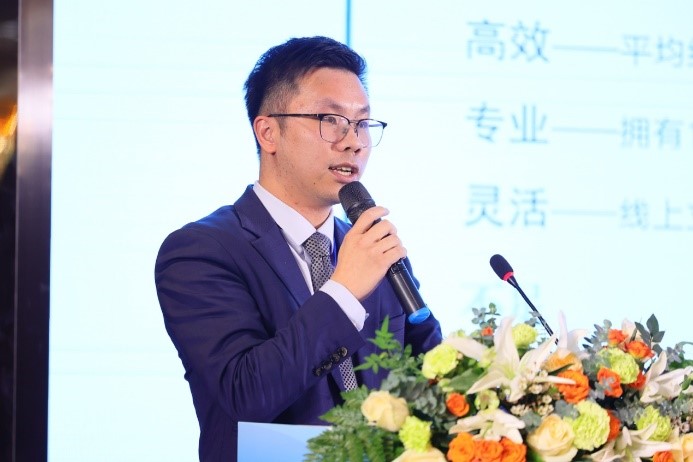
Deputy Director Wu Tianyu
Lawyer Xian Xiaoyan, a partner at Beijing Deheng (Zhuhai) Law Office, gave a speech on the topic of "Intellectual Property Conflicts and Resolution Paths in the Greater Bay Area of Guangdong, Hong Kong, and Macau." Lawyer Xian believes that the intellectual property conflicts in the Greater Bay Area are mainly due to the differences in legal systems, institutions, and procedures among the three regions. One possible path to solve these problems is to establish a unified regional norm for intellectual property conflicts, including the establishment of a unified intellectual property application system and strengthening cooperation in the judicial field. She also emphasized that mediation and arbitration can play a greater role in the diversified resolution of intellectual property conflicts and disputes.
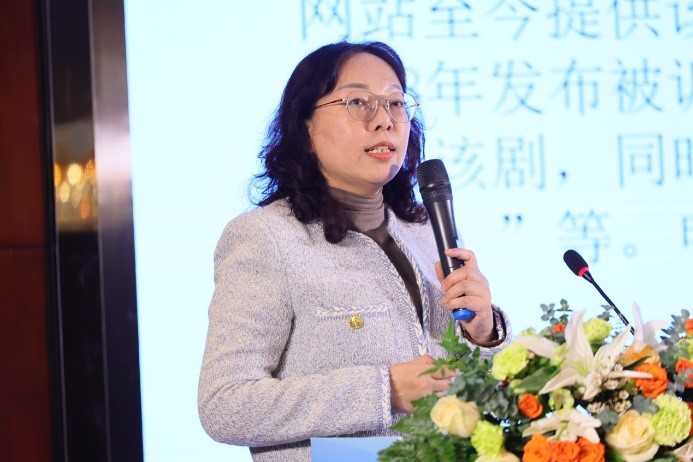
Lawyer Xian Xiaoyan
Vice Dean Xu Dandan from the School of Political Science and Law at Wuyi University, as the commentator for the third session, described the achievements of this session as "rich," "comprehensive," and in line with the innovative protection of intellectual property in the Greater Bay Area of Guangdong, Hong Kong, and Macau. She believes that this forum covers various aspects of intellectual property from theoretical research to practical implementation, and many experts and scholars have proposed new solution approaches to traditional problems. She also specifically mentioned the practical insights shared by the guest speakers in this session and how to address challenges and achieve innovation.
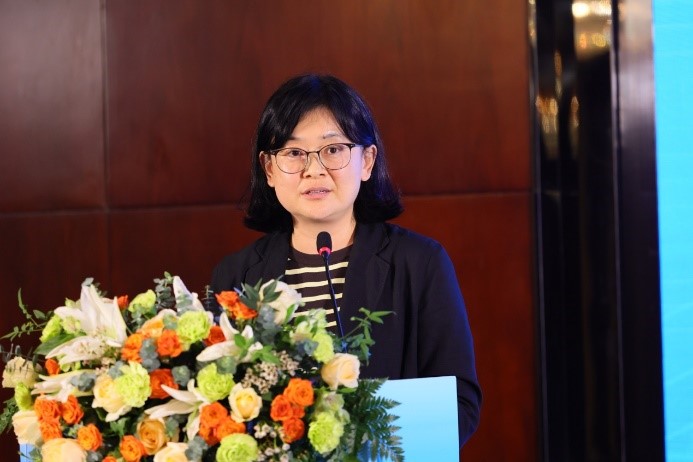
Vice Dean Xu Dandan
The closing ceremony of this forum was chaired by Director Zhang Chi of China Strategy Institute for Intellectual Property. Professor Wu Handong, Honorary Director of the Macau Intellectual Property Service Center and Distinguished Guest Professor at the Faculty of Law of Macau University of Science and Technology, delivered the concluding remarks. Professor Wu believed that the forum was rich in content and diverse in perspectives. He summarized the speeches of the forum as three "haves": having accomplishments, having contributions, and having expectations. At the same time, Professor Wu also welcomed the members of the governing units to gather again in Wuhan next year on behalf of the organizing institution, the Intellectual Property Research Center of Zhongnan University of Economics and Law, which will host the forum in 2024.




